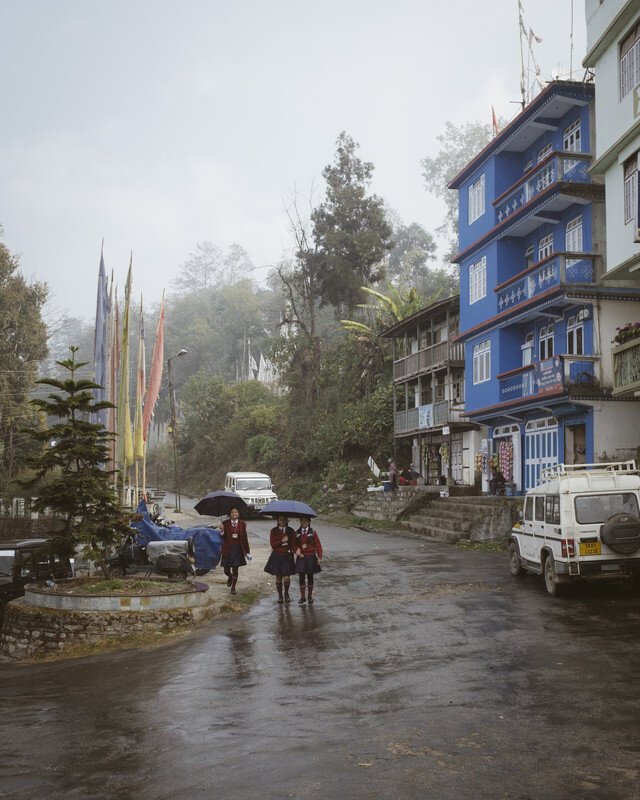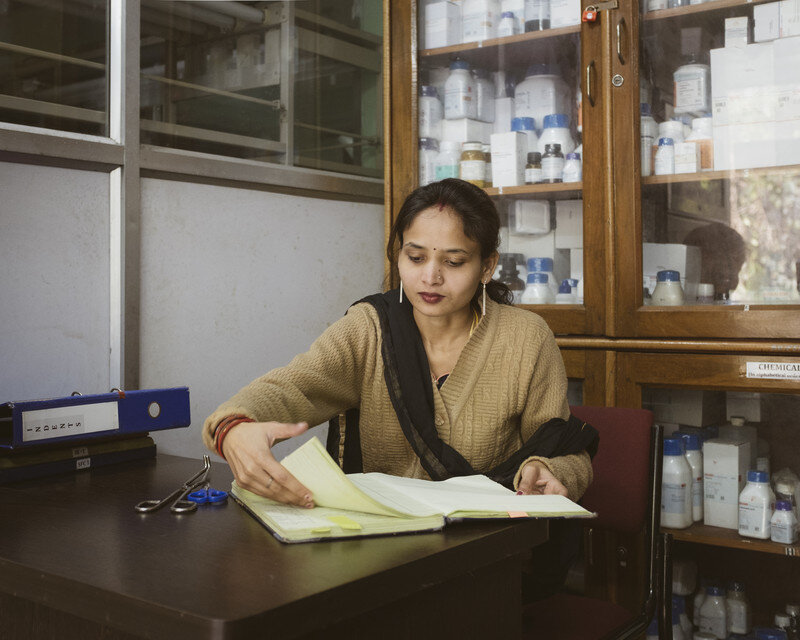Organic Farming In Sikkim
© Jens SchwarzUntil the early 1970s, Sikkim was an independent kingdom. For centuries, the area – wedged between Nepal and Bhutan – has had strategic importance as India‘s gateway to Tibet, now administered by China.
Back in 2003, Sikkim’s Prime Minister Pawan Chamling, who held office continuously from 1994 to 2019, sent his country on the road to becoming a ‘totally organic state’ - at a time when big agribusiness companies were conquering India, which had opened up economically in 1991. ‘The use of chemicals’, Chamling said at the time, ‘endangers human and animal life’. He aimed to convince each and every farmer of the benefits of organic production.
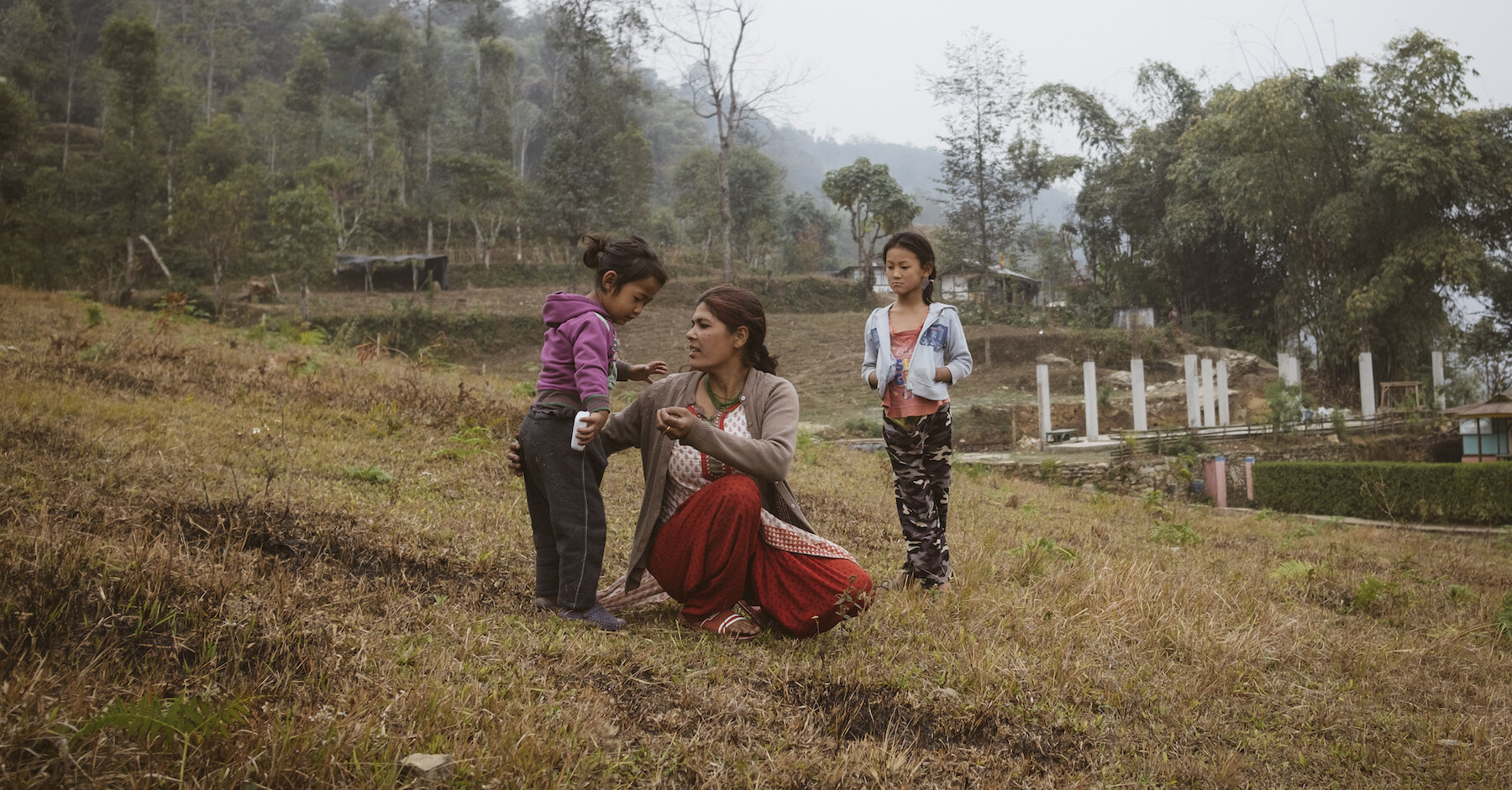
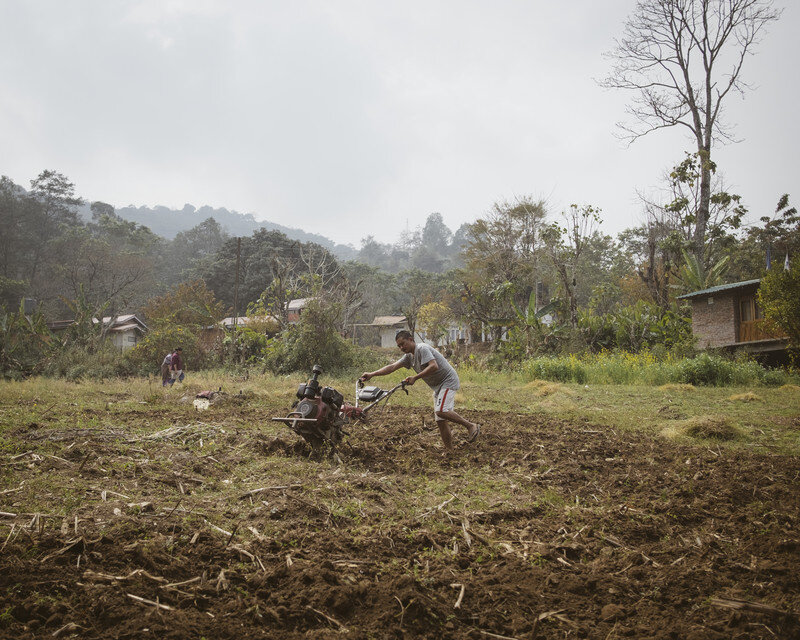
In January 2016, the Prime Minister declared that all agriculture in the state was now organic. Since then, not a gram of artificial fertiliser has been spread on the slopes of the Himalayan state. Chemical pesticides have also been banned. India, the country of pesticide scandals and farmer suicides, of cotton monoculture landscapes and toxic rivers - this India presents a completely different side in the northeast: close to nature, sustainable, clean.
Sikkim is the first state in the world that has freely decided to adopt exclusively organic agriculture. Here, it is neither the market nor a grassroots movement that is greening the land. In Sikkim, organic farming is a national policy, a vision and a requirement of the small state’s powerful and sagacious former long-time governor. It is not an option, but applicable law.
click to view the complete set of images in the archive
check out the photographers website
Ploughing the field with a small hand cultivator at Thendup Tashi’s farm, Yangsum, West Sikkim
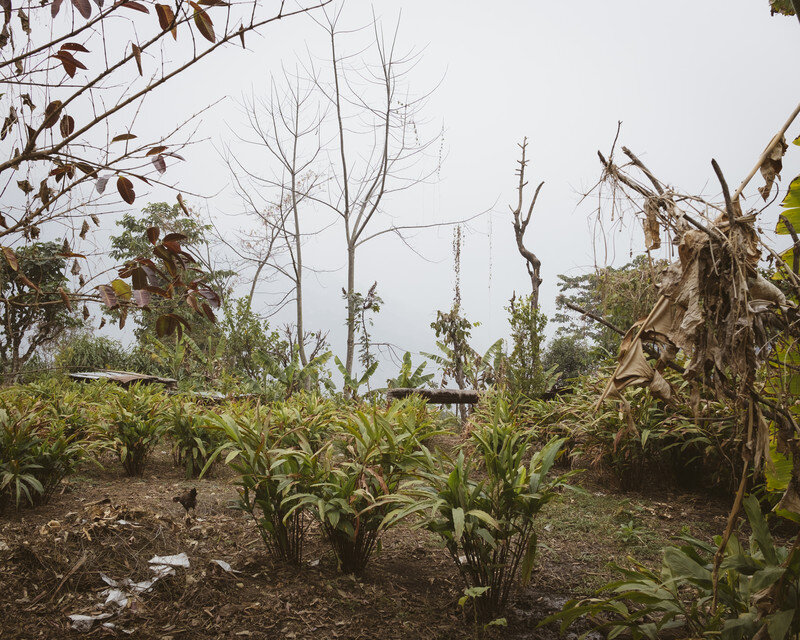 Turmeric plants at a neighbour’s garden
Turmeric plants at a neighbour’s garden
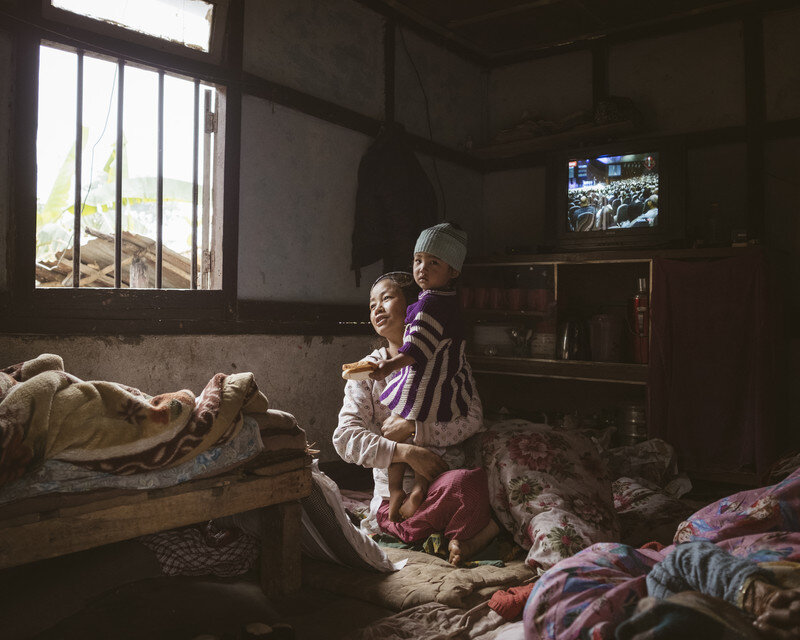 One of Thendup Tashi’s woman staff workers with her child at her house
One of Thendup Tashi’s woman staff workers with her child at her house
 Farmer Thendup Tashi at his living room
Farmer Thendup Tashi at his living room
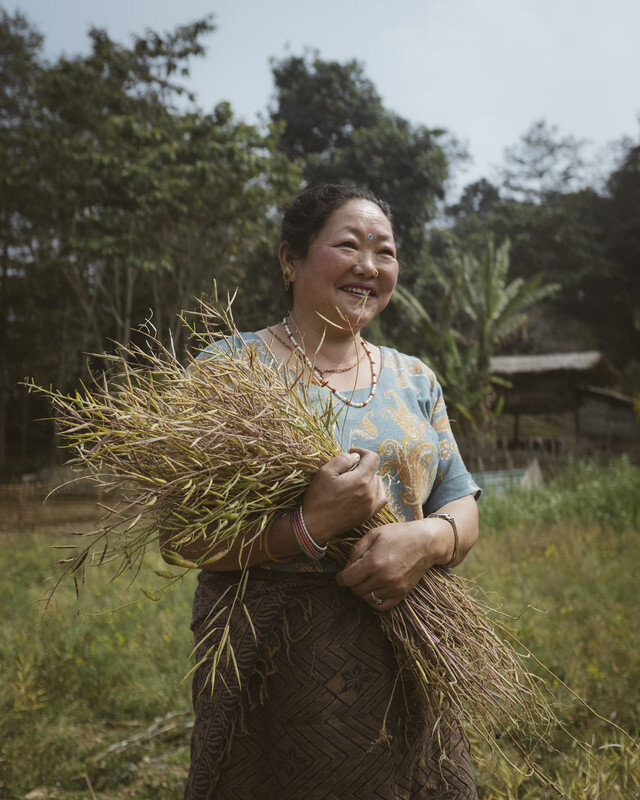 A field worker collects by-products of cultivation to make brushwood brooms
A field worker collects by-products of cultivation to make brushwood brooms
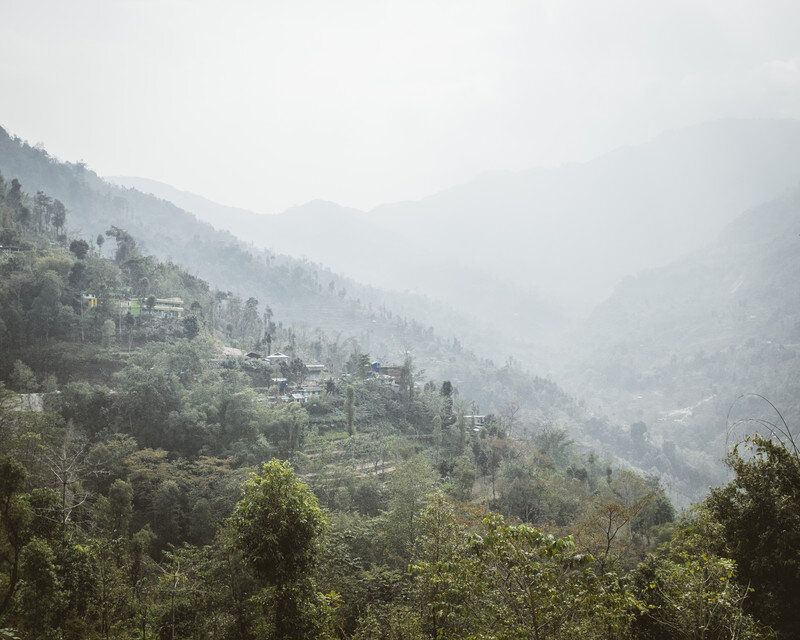
Pre-Himalayan landscapes with terrace cultivation, Yangsum, West Sikkim
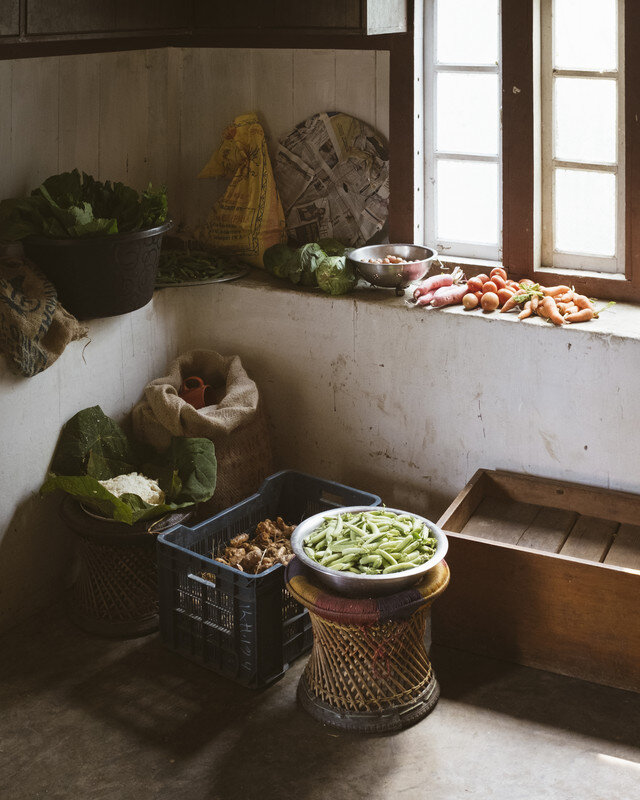
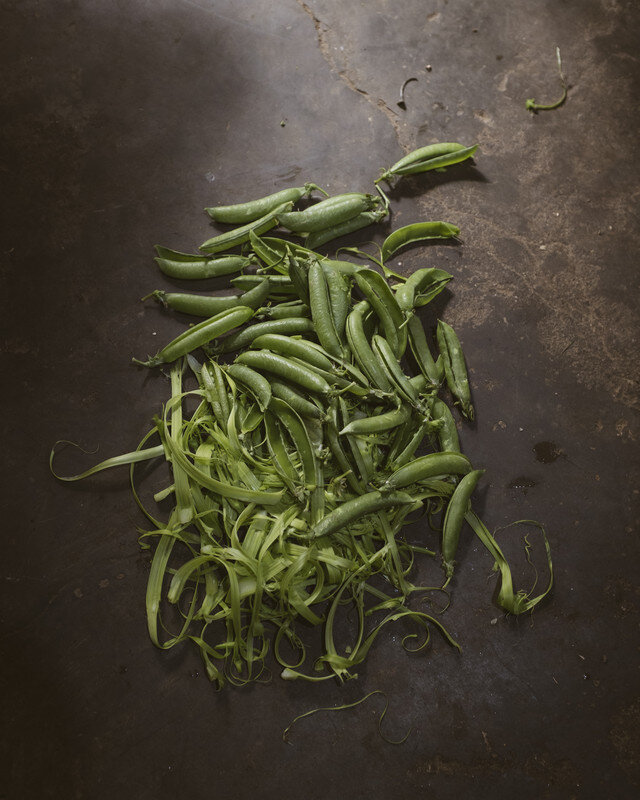
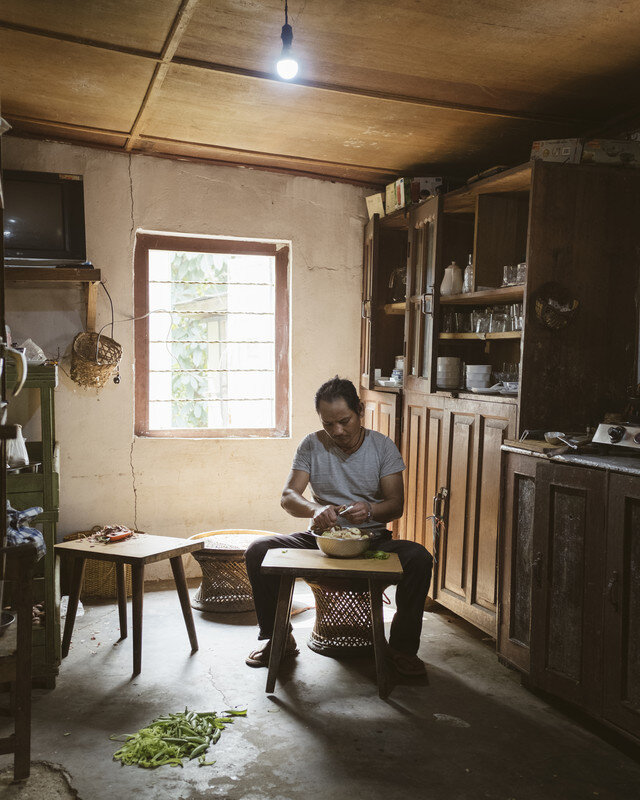
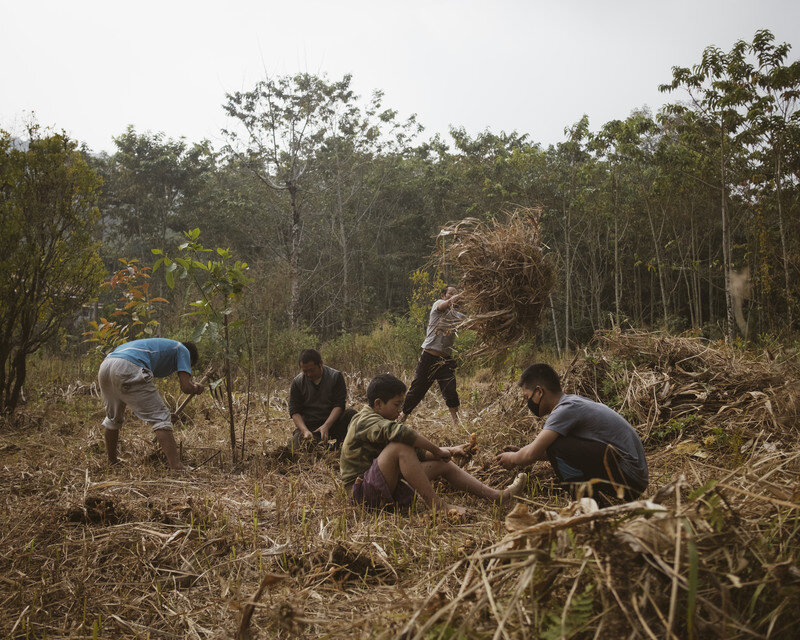
Harvesting turmeric in the fields
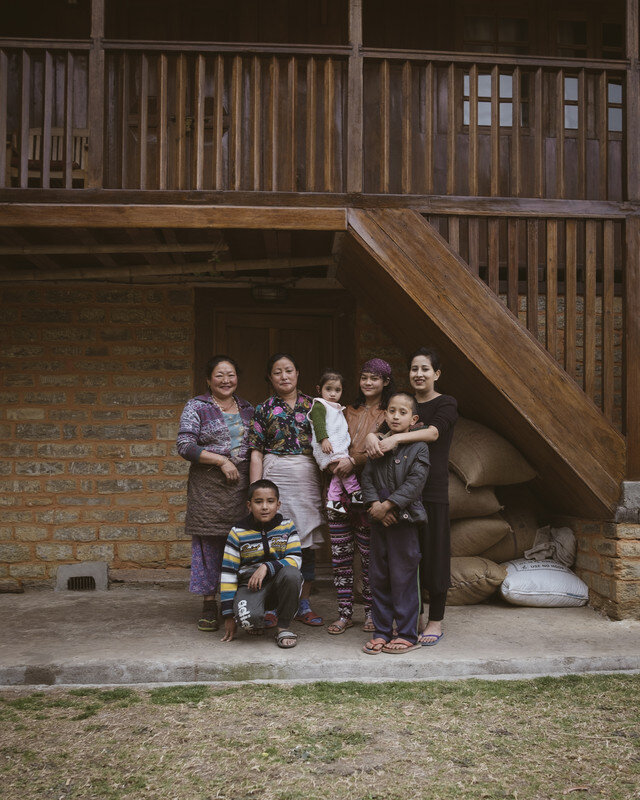 Group portrait with farm staff and their children, Yangsum
Group portrait with farm staff and their children, Yangsum
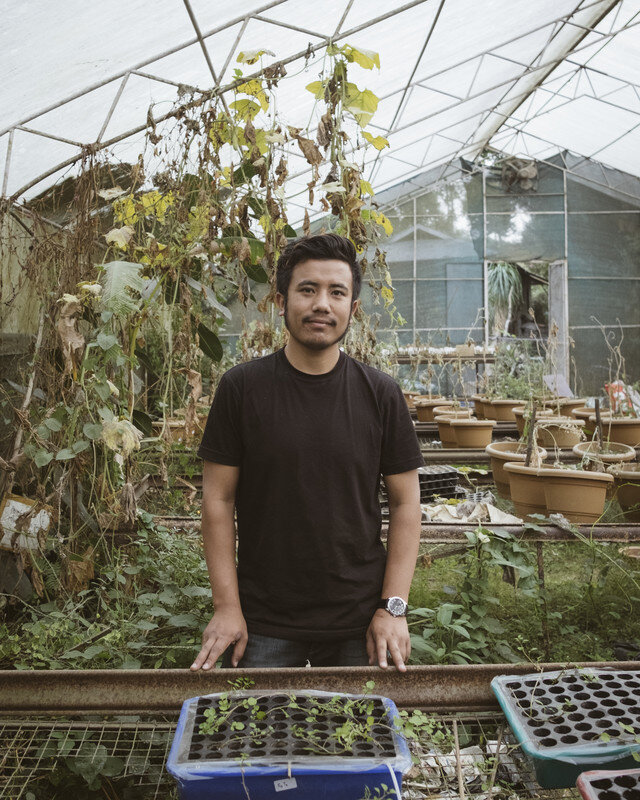 Student Dewan Limboo is working on a research project with planting and seed testing in the greenhouse, Sikkim University, Dept. of Hor- ticulture, Gangtok
Student Dewan Limboo is working on a research project with planting and seed testing in the greenhouse, Sikkim University, Dept. of Hor- ticulture, Gangtok
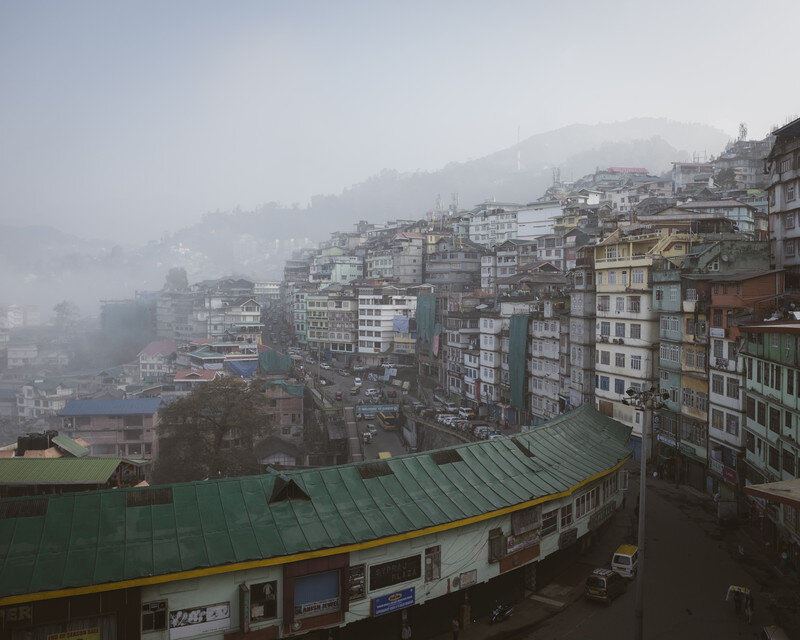
Gangtok, capital of Sikkim, at an altitude of 1650m

